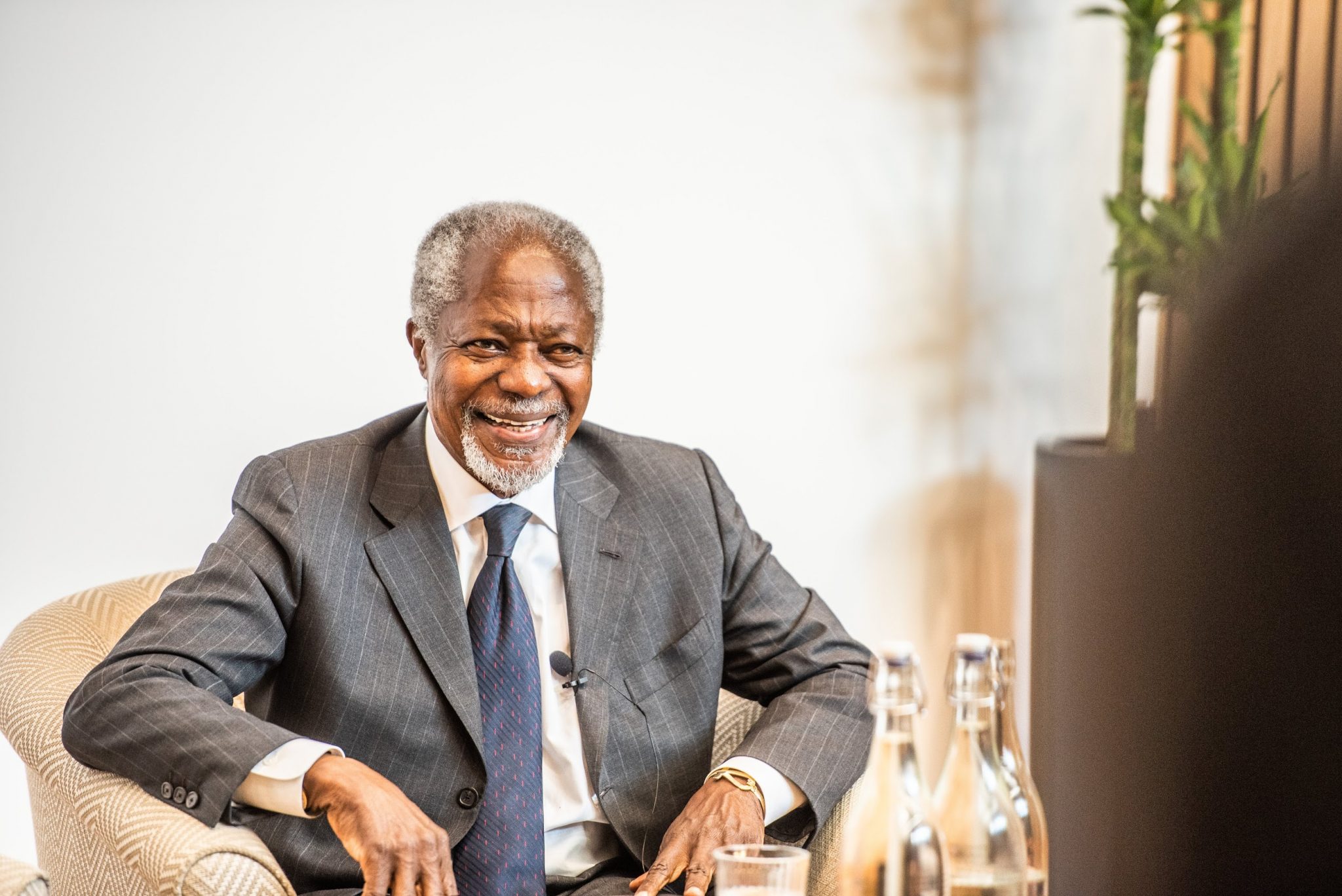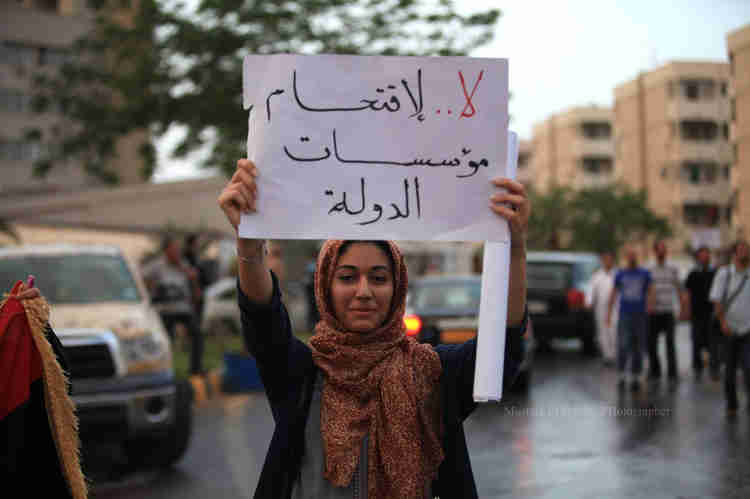Lifeline trumps deadline: achieving the MDGs until 2015
When we at the United Nations came up with the idea of the Millennium Development Goals (MDGs) at the end of the 1990s, the 2015 deadline seemed a long way away. Ten years later, it looks frighteningly close; so close that some are calling for a new deadline. But these calls for postponement are as premature as they are counterproductive. They don’t do justice to the remarkable progress made to-date, or to the enormous potential around the world for scaling-up proven success stories. The idea of extending the deadline also diverts valuable energy away from the real challenge of revitalising the political will to achieve the MDGs as soon as possible, and then to build on them.
Over the past decade, the MDGs and their framework of accountability have served the world well. They have given a much-needed sense of direction to national development efforts and to international co-operation. They provide rich and poor alike with a shared objective and clear and unambiguous targets to aspire to. But we all knew from the very start that attaining them would not be easy, even in the most favourable of economic climates, much less so in the difficult circumstances in which we find ourselves at the moment.
We are still far from achieving what we set out to do. Too many people are still caught in extreme poverty, too many are hungry and sick, too many mothers die in childbirth and far too many children still do not go to school. And we’re also not yet doing all that we might to protect the environment, nor to build effective international partnerships for development. We need to speed up the progress we have been making, and use every day over the next few years to alter these dreadful facts.
The lingering effects of the global economic crisis and of the food crisis too, along with accelerating climatic and demographic changes, will not make our task any easier. Yet there is still reason for optimism. For one thing, we have ample proof that the MDGs are attainable, even in the most resource-deprived and insecure circumstances. In Ethiopia and Tanzania, we have seen primary school enrollment rates almost double, and we have also seen Malawi and Algeria transform themselves from food importers to food exporters. We have seen HIV infection rates fall significantly in sub-Saharan Africa, while the number of reported malaria cases have been halved in high-burden countries like Rwanda and Zambia. In short, our efforts to achieve MDG-based targets have already improved the lives of millions of people around the world.
Also on the plus side, we now have a very clear idea of what needs to be done, and over the last ten years we have seen what works and what doesn’t. That means we can replicate and scale-up proven successes and avoid past failures. We also have a better appreciation of the fundamental importance of building incentives into sound macroeconomic policies and strengthening the technical, management and institutional capacities of developing countries to use government and other revenues and to foster growth. Good governance at national and international level, together with the rule of law, are central to this whole effort, as is promoting entrepreneurship and creating not just jobs but an environment of responsible investment. On top of that, we need concerted international action to address illicit financial flows and corruption, and at the same time to promote the value of public-private partnerships.
With all this in mind, developing countries and their international partners have put in place many agendas that are not merely good but often even visionary. These are plans and blueprints for action in such key areas as governance, infrastructure, food and nutrition security, women’s empowerment, health and education. Their continued implementation will go a long way towards addressing many of the remaining hurdles in the way of achieving the MDGs.
Developing countries can also now take advantage of a number of positive and transformative trends like the spread of modern information and communication technologies, the deepening of partnerships within the global South along with the growing appreciation of the developmental value of women’s empowerment. If harnessed skillfully, these trends can be used to accelerate economic growth and social development.
In other words, we have the knowledge, the plans and the supportive environment needed to speed-up progress towards the MDGs. In theory, at least, we should also have the funds that are needed, given the vast natural and human resources of the developing world and the generous commitments and financial pledges of development partners. So why is it that we’re not on-track to achieve the goals over the next five years? Is it because of vested economic interests or a lack of political will?
At issue in developing countries is not just their ability to attract and mobilise revenues, but also the political determination and capacity of their governments to use what revenues they have to achieve results. A number of leaders stand out as champions of equitable development, but they are still in a minority. Five years ago, I told the UN’s General Assembly: “if the Millennium Development Goals are to be achieved, developing countries themselves must live up to their commitments to adopt and transparently implement comprehensive national strategies for reaching these goals. Development will simply not happen if the developing world does not get its own house in order”. This is still as true now as it was then.
As to the world’s rich developed countries, there are understandable concerns that the consensus around development that defined the last decade is being eroded by the global economic crisis and its tumultuous aftermath. As budgets shrink and challenges mount, a number of donor countries have already begun to waiver in their commitment to international development and even to reconsider the promises they made not only in the Millennium Declaration but also in the Monterrey Consensus and the G8’shave the funds that are needed, given the vast natural and human resources of in the Monterrey Consensus and the G8’s Gleneagles Declaration. But however dire the current economic situation may be, this growing reluctance to honour pledges cannot be ascribed to budgetary constraints alone, given the comparatively modest sums involved. Nor is it a sign of decreasing human solidarity and sympathy between ordinary people around the world. Much of it instead results from the failure of political leaders to communicate clearly to their publics the links between international development and domestic issues.
The message must be that achieving the MDGs is not optional, because it is an essential investment in a safer, more human and prosperous world. The goals are not just an “aid obligation” but the basis for political and economic strategies that will benefit all the world’s citizens, and not just the least fortunate.
Revitalising the political will needed to achieve the MDGs is the linchpin for success. As both instigator and guardian of the MDGs, the UN has an important role to play in this process, and the High- Level Advocacy Group created by Secretary- General Ban Ki Moon of this year is an important step in the right direction. The primary responsibility, however, rests with national leaders. The challenge to them is to articulate once again a compelling case for global solidarity and equitable growth – one that embraces aid figures but then goes far beyond them. They have to make a case that addresses the growing inequalities between male and female, rural and urban, rich and poor. And their message should also be that we must not measure development and progress purely in terms of GDP growth and international aid flows. Ironically, the growing threat of climate change may help to build their case now that the devastating impact of rising temperatures is becoming increasingly obvious. The prospect is of a transformed political and development landscape in which necessity rather than altruism will compel politicians to persuade their publics of the imperative to invest in sustainable global development, and before anything else in meeting the MDGs.
But however much emphasis we must now put on achieving the MDGs by 2015, at some point towards the end of the next five years it will become legitimate, not to say imperative, to discuss post-2015 scenarios and strategies. For even if we succeed and meet all the goals, more than 900m people will still live below the poverty line, hundreds of millions will still be hungry and millions will go on dying from preventable diseases. It’s already obvious that we will then need to take the MDGs to the next level, and while there is some skepticism about the usefulness of naming specific goals as the basis for future development strategies, I remain an advocate of doing just that. After all, who can argue with as simple and powerful an objective as access to food and clean drinking water, jobs, health care and education for everyone as soon as possible?



